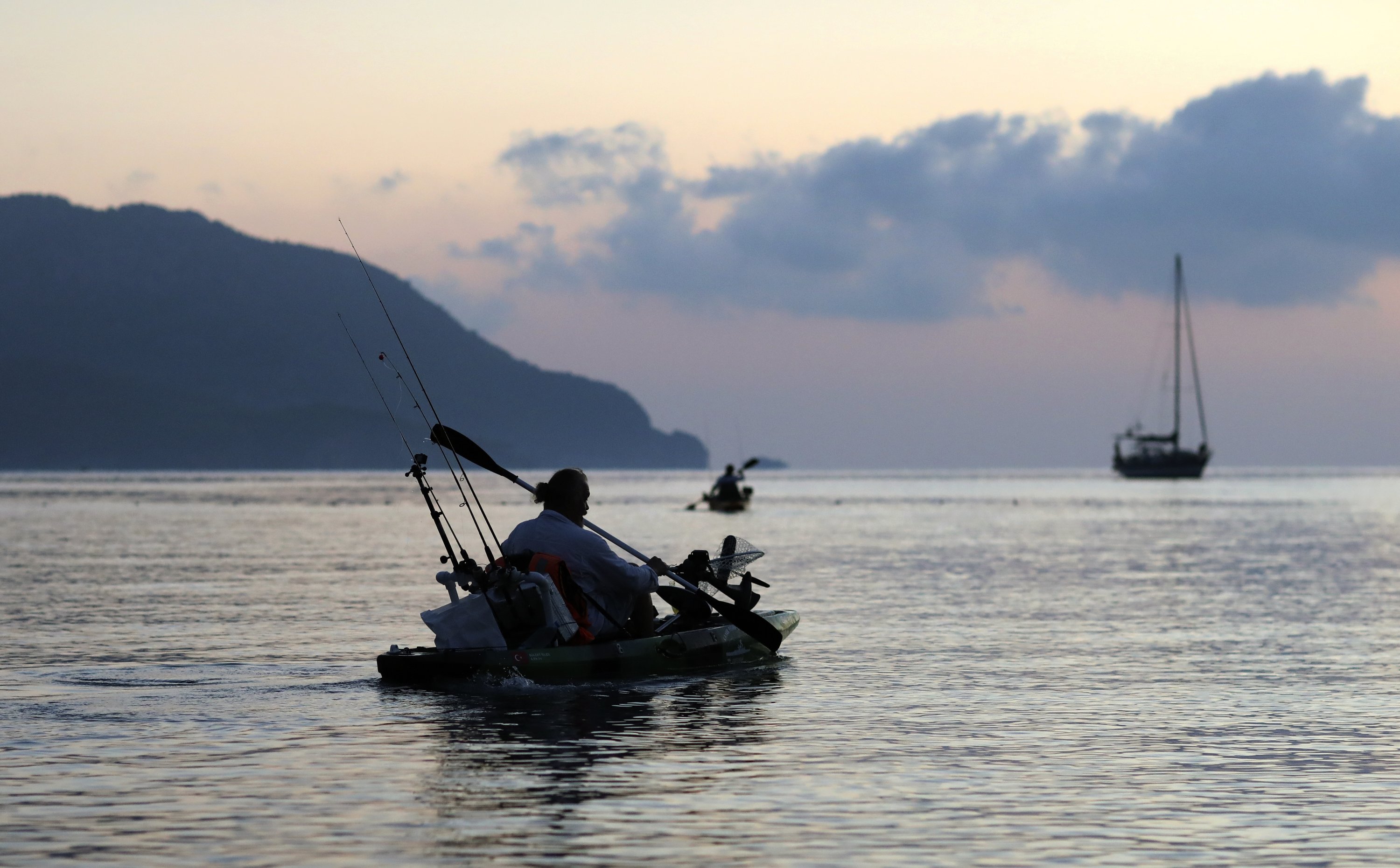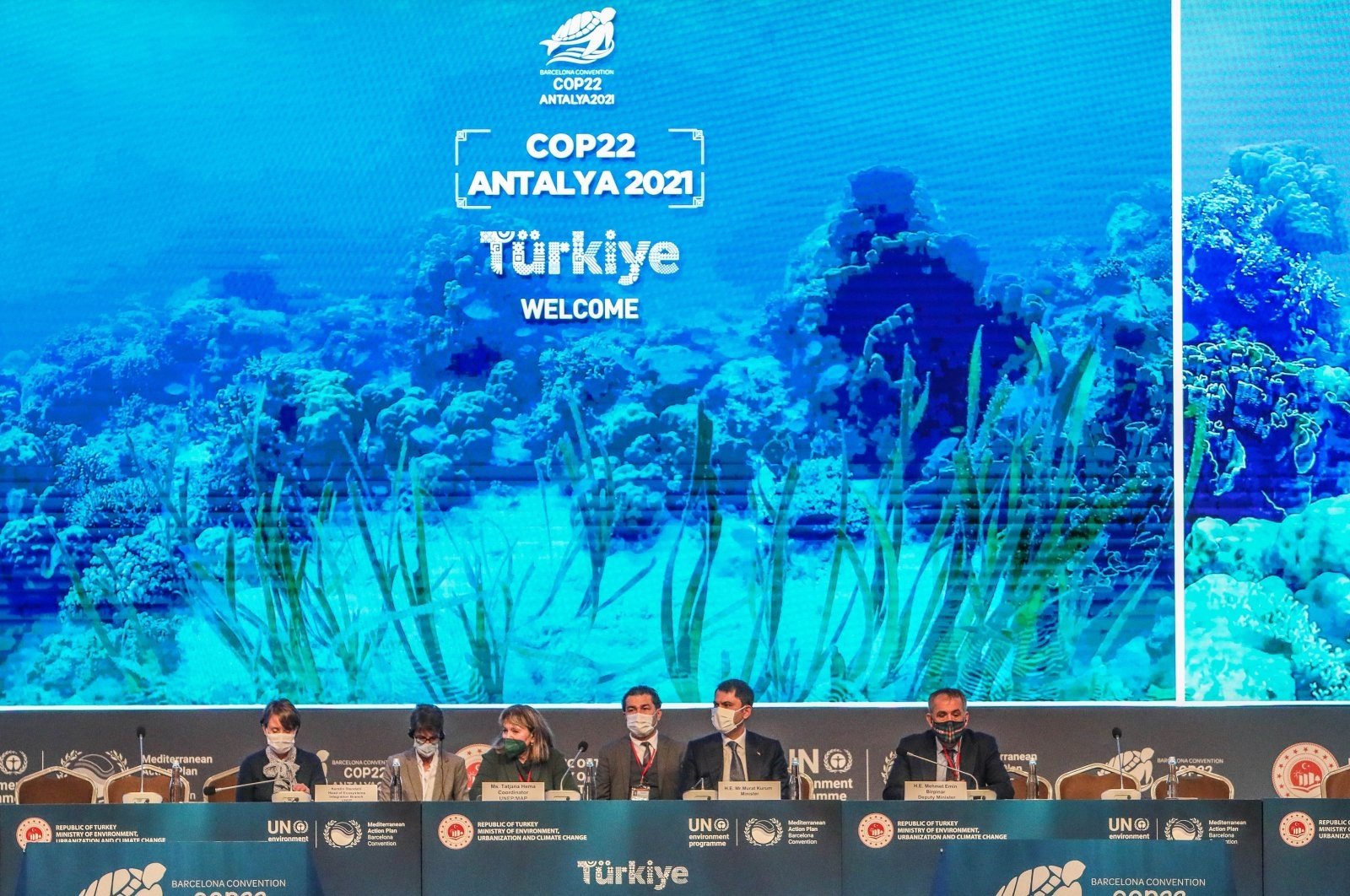© Turkuvaz Haberleşme ve Yayıncılık 2024
The Mediterranean ecosystem is fragile and human-induced pressures are felt intensely in the region. Around 70% of the population in the Mediterranean lives mostly in coastal cities and it is a popular tourist destination worldwide. However, the Mediterranean has recently been the victim of various kinds of pollution.
Nearly 5% of the world's carbon emissions originate from the Mediterranean countries. In addition, more than half of the Mediterranean countries use fertilizers and pesticides above the world average. Marine pollution is generally caused by the discharge of treated and untreated wastewater containing heavy metals. The Mediterranean's pollution is caused by metal production and processing, power generation, paper industry, chemical industry, and aquaculture industry. In addition, toxic pollutants are encountered, which are not well known in their life cycle and cannot be treated with conventional wastewater treatment methods. These pollutants consist of pharmaceuticals, cosmetics, fire retardants and plastic additives.
The Mediterranean is a region where maritime transport is heavy. As a result, accidents and oil spills at sea are also quite frequent. In addition, it is known that 50% of the garbage on the seabed is plastic. It is estimated that 730 tons of plastic waste make its way to the Mediterranean daily.

The Mediterranean region is warming 20% faster than other regions. There is a high risk of forest fire in the region. Sea water temperature is already 0.4 degrees Celcius ( 32.7 degrees Fahrenheit), higher than the global average. Coastal erosion, fires, invasive species, floods and seawater acidification are expected to increase in the region. A decrease in agricultural activities is expected due to rising sea water levels.
The Mediterranean is home to 18% of the known marine species in the world. In addition, it is the sea with the highest number of endemic species in the world. However, 10% of non-native species found in the Mediterranean are recorded as invasive species. As a result, the Mediterranean is facing the loss of biodiversity. While there is a 30% decrease in seagrass meadows, this species is expected to be completely wiped out from the Mediterranean in 2100 if no measures are taken. Likewise, coral ecosystems are in danger of extinction due to factors such as fishing, anchoring, invasive species, pollution and climate change. Decreased biodiversity means that ecosystem services provided by the sea (cultural, recreational activities, carbon storage, food and drinking water supply, etc.) are not accessible in the long run.
The Mediterranean Action Plan, also known as the Barcelona Convention, is a multilateral environmental agreement established in 1975 under the Regional Marine Program of the United Nations Environment Programme. It is special because it is the first regional maritime convention established within the U.N.
It was reshaped in 1995, following the 1992 Rio Conference, based on the developments made at the UNEP/MAP conference. While the convention initially focused on pollution, it has been expanded through its protocols to address biodiversity, coastal management and sustainable development. The Barcelona Convention was renamed "Action Plan for the Protection of the Marine Environment and the Sustainable Development of Mediterranean Coastal Areas" at the end of this process.
The convention has parties consisting of 21 Mediterranean Countries and the European Union. Parties come together at meetings called COPs every two years to decide on the MAP Work Program and the budget, policies and plans.
Celebrating the 45th anniversary of its adoption in 2021, the Barcelona Convention has achieved significant success since its establishment. The convention currently has 10 regional plans and nine action plans for protecting the Mediterranean and its coasts. The plans in question include many themes such as pollution, specially protected areas and biodiversity, integrated coastal zone management, sustainable consumption and production, and adaptation to climate change. The coordination unit of the convention has carried out successful projects to ensure the disposal of Polychlorinated Biphenyls (PCBs), which have carcinogenic effects on humans and animals.
Türkiye was the Mediterranean country that disposed of the most equipment contaminated with PCBs. At the end of this project, Türkiye disposed of approximately 635 tons of PCBs in 2015.
The convention also pioneers the Istanbul Environmentally Friendly City Award, funded by the government. Eco-friendly cities have been awarded since COP19 for their work promoting sustainable development. The third prize was presented to Malaga Municipality by First Lady Emine Erdoğan at the COP22 meeting held in Antalya, hosted by the Turkish government, from Dec. 7-10, 2021.
The COP22 Meeting was the platform where the first step was taken for the Women Leaders Round Table Meeting, hosted by the first lady, to become a tradition. The event underlines the importance of women's role as decision-makers in the Mediterranean region. Roundtables are a platform that aims to explore connections between gender and the environment in the Mediterranean to exchange views on strategies to create an effective environmental agenda and strengthen women's leadership in practice.

Other important issues that came to the fore at COP22 were the resolution of essential policies that set the road map for the future actions of the participating countries in the Mediterranean region. During the COP22 meeting, the State of Environment and Development in the Mediterranean Report (SoED), the Mediterranean Basin Climate Change and Environment Report (MAR1), and the IPCC's Sixth Assessment Report showed that the triple crisis (pollution, climate change and loss of biodiversity) taking place in the Mediterranean region is more dangerous than ever. At the meeting, 19 resolutions were adopted, addressing several environmental problems to leave a healthy and productive Mediterranean for future generations. In addition, the COP22, the first COP after the COVID-19 pandemic, was an important step toward reviving the region's stagnant economy while protecting the environment.
The contract carries out its activities simultaneously with the six-year strategy plan called the medium-term strategy. The first medium-term strategy (MTS 2016-2021) was adopted in 2015. MTS draws a picture of the Mediterranean environmental situation, discusses the policy context in the Mediterranean, sets out a vision of the region's common principles, and presents the themes needed. It takes into account the implementation, financing and partnerships to be established in the six-year period. The new medium-term strategy for 2022-2027 (MTS 2022-2027) is aimed to combat the triple crisis of climate change, biodiversity loss and pollution in the Mediterranean and contribute to the implementation of the 2030 Agenda for Sustainable Development and Sustainable Development Goals.
Several action-based resolutions were also adopted during COP22. The decision to designate the Mediterranean as a Sulfur Oxide Emission Control Area (MED SOx ECA) in accordance with MARPOL Annex VI will significantly benefit the environment and human health. According to the decision, the quantity of sulfur in marine vehicle fuels will be reduced to one per 1000. Thus, a reduction of 78.7% in sulfur oxide emissions and 23.7% in PM 2.5 emissions will be achieved. With this decision, which will be enforced in 2025, the Mediterranean has joined the other four emission control areas. Ms. Tatjana Hema, the UNEP/MAP coordinator, said she could not think of a better way to celebrate the convention's 45th anniversary other than this decision.
During COP22, decisions to implement other important plans and programs were also taken and one of them was the Post-2020 Strategic Action Program for the Conservation of Biodiversity and Sustainable Management of Natural Resources in the Mediterranean Region (Post-2020 SAPBIO). This decision was complemented by a strategy document that included site-based conservation measures and action plans for protecting species and habitats. Post-COP22 parties are responsible for reviewing or preparing their national biodiversity strategies and action plans.
To combat marine litter, supporting the development of green and circular businesses – protocols on the Protection of the Mediterranean from Pollution from Land-based Sources and Activities, Prevention and Elimination of Pollution in the Mediterranean from Discharge from Ships and Aircraft or from Combustion at Sea, Prevention of Pollution in the Mediterranean from the Discovery and Operation of the Continental Shelf and Seabed Amendments to the issues – were also accepted. The importance of the transition to data-based reporting was emphasized in preparing the 2023 Mediterranean Quality Status Report (2023 MED QSR).
The ministerial session of COP22 was held under the theme of "Toward the Blue Mediterranean: Leaving a Clean Legacy, Conserving Biodiversity and Sustaining Climate Stability," which drew attention to the triple crisis in the region. Environment, Urbanization and Climate Change Minister Murat Kurum opened the ministerial session. In his opening speech, Kurum underlined the need for stronger cooperation to tackle the challenges in the Mediterranean. The Antalya Declaration signed at the ministerial session symbolizes the strong political support from the ministers of the Mediterranean countries and their joint efforts to achieve a sustainable and productive Mediterranean and coasts.
The Antalya Ministerial Declaration calls for the renewal of regional commitments to reach productive and biodiverse marine and coastal ecosystems, a healthy, clean, sustainable and climate-resistant sea and coast, and to get out of the COVID-19 pandemic with a better economy. The Declaration also draws attention to the need to align with other global commitments such as the Paris Agreement, the Convention on Biological Diversity, and the 2030 Agenda for Sustainable Development.
The two-year period after COP22 has been planned according to the Work Program Document (PoW) and the budget document was prepared according to this document. The PoW is designed to comply fully with the MTS 2022-2027 and includes long-term activities focused on resolving the tripartite crisis in the region. In the document, priorities are specified, such as plans to provide technical standards for facilitating wastewater treatment, pollution and the garbage-free Mediterranean, and recommendations to examine the themes of biodiversity and ecosystems, climate change, governance, common regional vision, sustainable use of resources in the region and regional communication focusing on expanding and strengthening the management of marine protected areas.
After COP22, the chairmanship of the office meetings, where the work to be done in the two-year period after the COP meetings and the management issues are discussed at regular intervals, has passed to our country.
The first office meeting of this period was held in Istanbul on March 23-24, 2022, during which several issues, such as the regional thematic strategies, key messages of COP22, and forward-looking work, were discussed. In Mediterranean Quality Due Diligence for the upcoming 2023 (2023 Med QSR), MAP Information Management Strategy and the adoption of the relevant protocols of the Barcelona Convention by the parties and reporting activities were discussed. As a result of the meeting, a series of recommendations were decided.
At the bureau meeting, parties were recommended to actively participate in the announcement of the Emission Control Area for Sulphur Oxides (Med SOx ECA) decision taken at COP22 at the 78th Marine Environment Protection Committee (MEPC) of the International Maritime Organization (IMO). Another strong message of the Bureau to the parties is the effective use of global forums such as the U.N. Ocean Conference, Stockholm +50 Conference, U.N. Convention on Biological Diversity, and United Nations Framework Convention on Climate Change to ensure the visibility of UNEP/MAP's work, and especially to draw attention to the contribution of the relevant results of the Antalya Ministerial Declaration and COP22 to the Sustainable Development Goals.
Another important event held during the bureau meeting in Monaco on May 20 was the Mediterranean Important Specially Protected Areas (SPAMI) Day. This special event brought together the directors of 39 SPAMIs and the representatives of the relevant institutions.
All scientific studies have clearly shown that the Mediterranean environment is vulnerable to the triple crisis. The ongoing effects of the triple crisis can only be mitigated by joint efforts on a regional and global scale. The decisions taken and the measures and policies adopted at COP22 require taking the necessary political and legal steps, sharing information about technological developments, raising public awareness and participation, and education. Coordination and cooperation are needed more than ever, not only between the governments but also the public-private sector and nongovernmental organizations.
